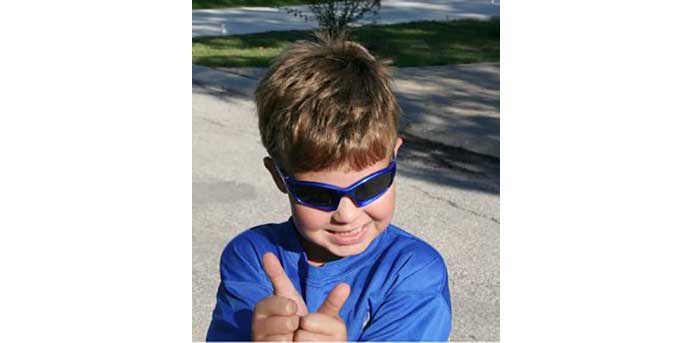Google “blind organization,” and you will generate 13 million results in less than a second.
Google “low vision organization,” and your hits will drop to 2.2. million. Two Deerfield mothers, Wendy Baum and Susan Ballis, are trying to change that.
In 2006, they started Vision for Tomorrow Foundation, a national nonprofit dedicated to helping families of children with low vision, a condition in which someone is unable to attain perfect sight even with glasses.
“[These children] can still participate in sports and be very socially accepted but struggle because they can’t see well with glasses,” says Baum, co-president of the organization.
On Aug. 22, the foundation is hosting its second “Keep Your Eye on the Ball” three-on-three basketball tournament. This year’s event will be held from 8:30 a.m. to 7 p.m. at the Joy of the Game Basketball in Deerfield.
Girls in grades sixth through eighth and boys in grades first through eighth are invited to compete in the tournament. The championship games will start at 4 p.m., when the doors open for family-friendly festivities that include food, music, dancing, a silent auction, raffles, inflatables, and arts and crafts.
All proceeds will fund research initiatives as well as support and education resources for families and medical professionals. The last fundraiser, in 2008, yielded more than $60,000, which the foundation hopes to top this year.
“We accumulate large sums of money to commit to projects that look promising to help children with low vision,” Baum says.
But the research is not necessarily medical, explains Baum, whose 8-year-old son, Tyler, is affected by low vision. The foundation also helps to advance technology such as optical pieces that help teenagers drive who would not otherwise be able to.
Ballis, an ER doctor, has met with geneticists, researchers and doctors from around the world to learn more about albinism, one of the two disorders the foundation supports. Due to the large amount of misinformation out there, she says her goal is to educate people on the truth about albinism and aniridia (the absence of an iris).
“I try to understand the condition to the best I can and translate that into language that parents can understand,” Ballis says.
When her 8-year-old daughter, Tess, was diagnosed with albinism, Ballis talked to a few foundations that did not support the disorder because it isn’t degenerative and will not worsen over time.
“There are a lot [of organizations] that help blind children, but not many with low vision,” Ballis says. “So we started this one.”
Want to help kids with low vision? Register your team by Aug. 18.

